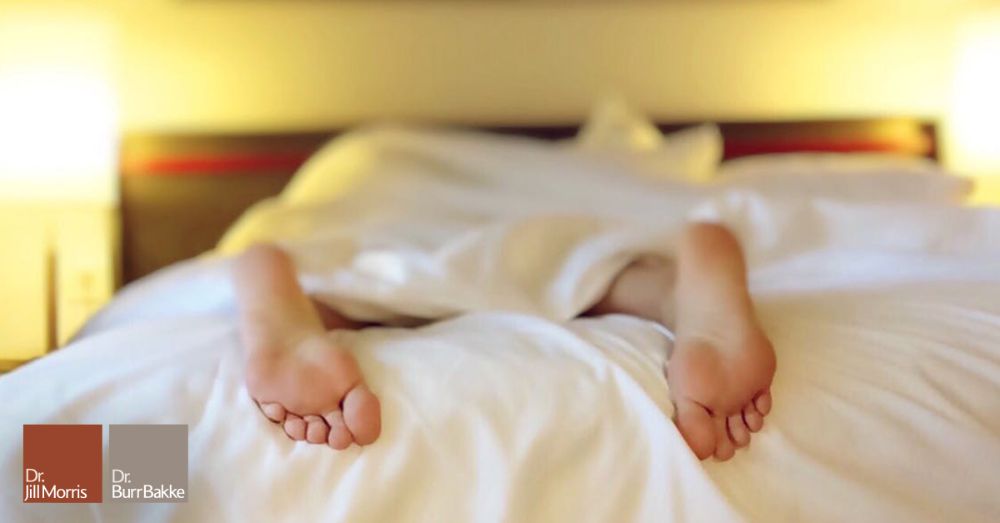I remember as a kid, always hearing about how Grandpa Joe died in his sleep. In fact, I remember hearing about quite a few people who died in their sleep. I thought that sure was a nice way to go if it was your time.
Have you ever wondered why someone would die in their sleep? It seems like a pretty stress free time to die. The body was not under any physical stress…….or was it?
Think of normal breathing like a garden hose that has water flowing freely through it. There is a large flow with no disruption of flow.
Simple snoring is a minimal disruption of air flow. It is like putting your finger partly over the end of the garden hose to cut off a little water flow. With snoring, there is a disruption of air flow with an increase in velocity. The Journal of the American Medical Association reports that people who snore have 3 times as many car accidents as non-snorers. The Journal also reports a 10 fold increase in carotid blockage and 1000% increase in stroke.
Snore Arousal happens when the air is blocked off significantly so the person has to work harder to breathe but continues to not get enough air. This is hard work and the person is aroused from deep sleep.There is no oxygen drop in the blood. There are studies that report that fibromyalgia patients are prone to more snore arousal episodes. This affects the quality of sleep.
Hypopnea is the condition when the garden hose is almost completely blocked with minimal flow. This is snoring without complete blockage. There is almost no air and the brain arouses the body to begin breathing again. Once again this brings the person out of the deeper levels of sleep. This is also a dangerous blood oxygen drop of 3%. The blood thickens.
Obstructive Sleep Apnea (OSA) is suffocation. No air is entering the lungs because the tongue and soft tissues are blocking the airway completely. The brain must arouse the sleeper or the sleeper will die. There are significant drops in oxygen levels and greater strain on the heart and other organs. The deeper the sleep, the worse the apnea. In this situation, there is also a reverse vacuum from the airway to the stomach that could increase problems with GERD and acid reflux resulting in damage to the esophagus.
Central Sleep Apnea is like the faucet being turned off. There is no effort to breathe, no snoring, and a significant drop in oxygen. This type of apnea is best treated with the CPAP or BiPAP because it is not caused by obstruction of the airway.
There are 5 stages of sleep
When a person has hypopnea or obstructive sleep apnea (OSA), they are aroused throughout the night so that they are not able to stay in the deeper stages of sleep (stage 3,4, Delta, REM). It is in these stages that growth hormone is released as well as anti-aging and healing factors to the body. Metabolic Syndrome is related to the lack of these hormones, so it becomes very difficult to lose weight and weight gain is easy. Many people are told that it will help to lose weight, but find it difficult because these hormones are not released due to lack of deep sleep. It is a vicious cycle.
Health Statistics
- Sleep disordered breathing causes high blood pressure.
- Sleep disordered breathing is associated with a 36% decrease in survival over 8 year.
- Severe sleep apnea can be more dangerous when operating a vehicle than drunk driving.
- There have been manslaughter charges brought against people who were diagnosed with sleep apnea. They had been prescribed the CPAP, were found not compliant wearing the CPAP which resulted in car accidents resulting in fatalities.
- Approximately 50% of people prescribed the CPAP/BiPAP equipment, can tolerate wearing the appliance.
- Reduction surgery of the tongue, soft palate, turbinate’s, or deviated septum have limited results. Once this surgery is performed, another sleep study is mandated to see if there has been an improvement in airway resistance.
- CPAP is considered to be the “gold standard” of treatment, but studies show a very low compliance of 25%-45%.
What can the dentist do?
- An oral appliance will only help people with Obstructive Sleep Apnea. It will not help those with Central Sleep Apnea.
- A sleep study is necessary prior to the consultation.
- Oral Appliances work for 80-90% of OSA patients.
- Another sleep study is necessary after the appliance is properly adjusted and successfully worn by the patient. This is warranted to prove that it has significantly improved the hypopneas and apnea episodes.
- There are multiple appliances on the market in use. Your dentist can help you make the decision which appliance will be best for you.
If you would like a consultation with Dr. Morris at World Class Dentistry regarding your snoring or sleep apnea:

